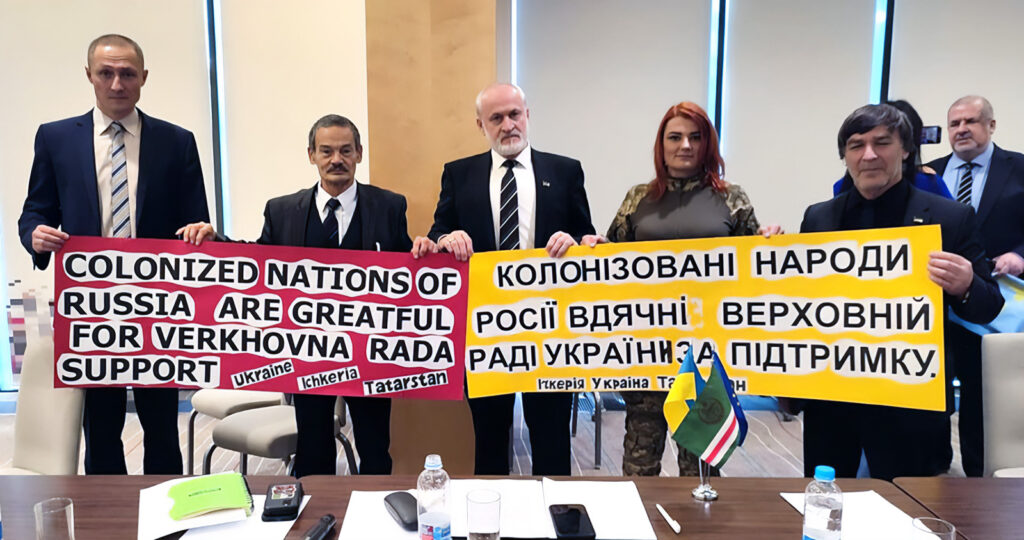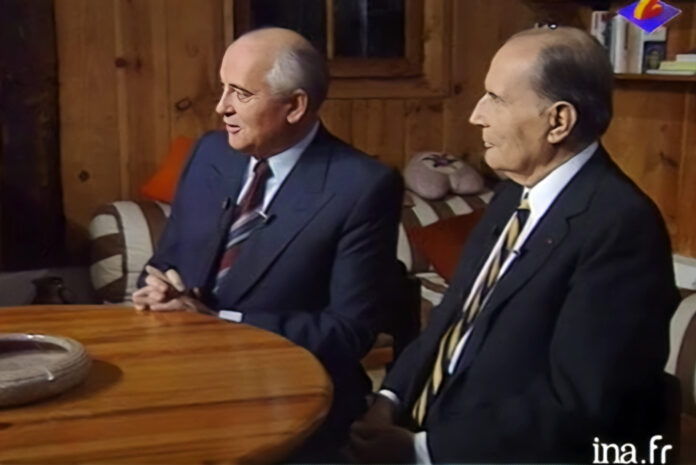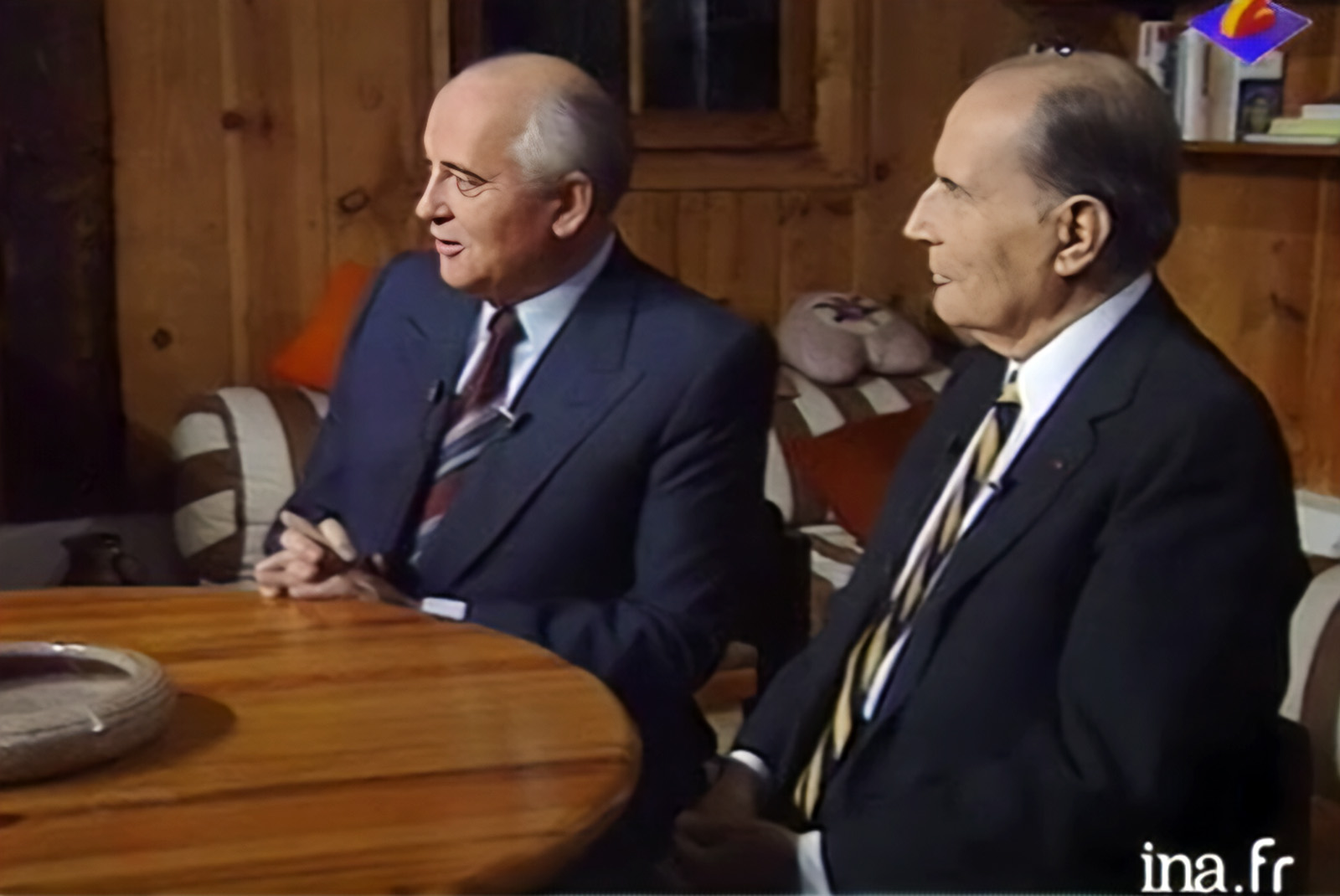A paradoxical consensus has formed in recent weeks In Ukraine, Russia and the West: the war will be long and it will require considerable effort on the part of belligerents and their allies. This consensus is based on a symmetrical assumption on both sides. Kremlin leaders and their propagandists relentlessly tell the Russians that their very existence is at stake, that the West wants to destroy Russia. This argument is effective, unfortunately. In the West, people are terrified by the prospect of Russian chaos should Putin’s regime fall – a state of mind strongly encouraged by the Kremlin’s propaganda, which effectively highlights Prigozhin, Girkin and other deranged turbo-patriots swarming on the Russian scene. Therefore, in order to put an end to the conflict, it is necessary to work out and put forward a project for post-war Russia that reassures the Russians about their future fate and opens the door to a prospect for a normal life to which they increasingly aspire as they shake off the Putinian chimeras, while at the same time offers guarantees to Russia’s neighbors and to the West that henceforth a recurrence of Putinism is excluded.
We are far from it. The West seems to be in the process of repeating the mistakes made during Gorbachev’s final years and during the Yeltsin years. And this under much more serious conditions, as the Ukrainians are paying with their blood for the procrastination of NATO countries that, since the beginning of the war, have been late in supplying them with the weapons needed to block Russia’s policy of annihilation and to drive the invader from their homeland.
We need to remember that from 1990 to 1991, the West did everything to keep the USSR from complete collapse1. As early as November 25, 1988, Mitterrand had warned Gorbachev: “Excessive centralization is dangerous, but the same can be said of excessive decentralization”2. The French president declared to the Council of Minister on July 20, 1989 that, “There is a risk of disorder in the Soviet empire. This disorder is probably not preferable for us to the order that reigned there until now”3. On April 19, 1990, following the declaration of independence adopted in March by the Lithuanian parliament, George Bush complained to the French president: “There are people who would like — and this bothers me — for Lithuania to be independent and for the Soviet military to withdraw”4. The Americans, French, and Germans jointly pressured Lithuanian President Landsbergis to “suspend” the Lithuanian declaration of independence5.
Two days earlier, on April 17, 1990, Mitterrand had expressed his concern to President Bush: “The day Ukraine moves, the USSR will cease to exist”6. In August 1991, Bush had visited Ukraine and had tried to convince the Ukrainians to sign a federal treaty with Russia, warning them against “suicidal nationalism”. He explained to them that the desire for freedom and the desire for independence were two different things, implying that the United States supported the former but not the latter. Yeltsin was at that time allied with the republics of the USSR against the federal center. He was coldly received in his visits to the West during spring 1991, and even the object of insults in the European Parliament on April 16, 1991. On October 30, 1991, Mitterrand went so far as to declare to Gorbachev: “Dislocation of the USSR would be a historical catastrophe contrary to France’s interests”7. Indeed, until the very end the West had hoped to save the USSR. And it is this fear of chaos (notably the famous “loose nukes”) that explains this current surprisingly myopic attitude.
What happened next shows to what extent these concerns about post-USSR chaos and the supposed spread of Soviet nuclear weapons were exaggerated and skillfully manipulated by the Kremlin’s masters. The real danger lay elsewhere. It is this exclusive preoccupation with control over the nuclear arsenal that is at the heart of errors in Western policy that we are paying for today. Indeed, the West reduced its Russian policy to support first Gorbachev and then Boris Yeltsin. The West tacitly accepted that the latter restore the autocratic matrix of Russian power by dissolving his parliament using armed forces and by adopting a constitution that favored a monarchic presidency (1993). The West adopted the easy solution preferred by most Russian liberals, which was to install an authoritarian power in Russia in order to advance economic reform. The West ignored the increasingly disturbing signals from the Kremlin, including the inhumane war in Chechnya. In 1995, Djohar Dudaev, Chechnya’s first president, said in an interview that was prophetic: “Ichkeria [Chechnya] has moderated Russia’s appetites a little bit, but it has not stopped them. There will be a battle for Crimea, Ukraine will have to face Russia again. As long as Russianism exists, it will never give up its ambitions. Just like in the past, the Russians want to oppress Ukraine, Belarus, to strengthen themselves… Nobody wants a political or military alliance, or even trade relations with Russia now”. Today Akhmed Zakaev, head of the Chechen government in exile, contends that, “it is the West that is responsible for the fact that Russia has become a threat to the entire civilized world”. But the West has closed its eyes to Putin’s misdemeanors, to his crimes in Chechnya, because it has feared Russia’s collapse. But “the problem is not Putin: it is the system of Russian chauvinism that is in power in Russia…” And Zakaev hammers home his point: “If Russia collapses, nothing will happen,” whatever Russian liberals say. For “as long as the Russian empire remains, no one will be safe from the threat of Russia“.
Russian imperialism is distinctive in that it determines the political organization of Russia. Indeed, Russian despotism is justified by the empire’s existence, maintenance, and extension. Stalin understood that very well. As he explained to his close circle on November 7, 1937, when the terror was in full swing: his goal was “to create a united and indivisible state”, so that if a part would separate itself from the USSR, “it would be unable to exist independently and would necessarily fall under a foreign yoke”. Thus, “whoever tries to destroy the unity of the socialist state, to separate a part or a nation from it, is an enemy, an enemy that we will destroy even if he is an old Bolshevik”8. We see here how the imperial logic supports the policy of terror. Centralization of the state becomes the pretext for purges and repression. Victims of the famous Stalinist trials were systematically accused of wanting to dismember the USSR for the benefit of capitalist countries. And it is not for nothing that years later that Putin’s ideologists would present the “vertical of power” as “staples” that have held the motley body of the Russian state together. It was therefore inevitable that the authoritarian drift of power, which began under Boris Yeltsin and accelerated under Vladimir Putin, would lead to an increasingly overt drive to conquer. Russian despotism is inseparable from expansionism. Russians tolerate being enslaved on the condition that they can enslave others.
It follows that if we want lasting peace in Europe we must help Russia to rid itself of this autocratic matrix that afflicts its neighbors and itself. A victory in Ukraine offers a unique opportunity to do so, provided that we do not allow ourselves to be paralyzed by a fear of chaos, to the point of accepting another “strong man”, a so-called “reformer”, who will replace Vladimir Putin in the Kremlin and will proclaim a superficial deputinization that will not reach into the heart of the regime. It is this expectation of “controlled transition” that explains the West’s procrastination for supporting Ukraine. But this policy is doubly harmful. In the long term, a Putinian system without Putin will only return Russia to its historical pothole. And in the short term, Putin’s current policy sows the seeds of anarchy and civil war in Russia on a daily basis. The implosion feared by the West is a direct result of the measures taken by Russian authorities: the release of hardened criminals to send them to the front, the creation of a large number of paramilitary troops that operate outside the law, mass mobilization without adequate material means, the scuttling of the economy, etc… The longer Putin’s regime remains in place, the greater the risk of chaos. One can imagine these hordes of soldiers accustomed to looting and violence returning to Russian territory… A quick victory for Ukraine followed by the fall of the Putin regime is in the interests of both the West and the Russian people.
Opposition politician Leonid Gozman contends: “This war can only be followed by peace if it ends with the complete military and political defeat of Putin’s Russia and the dismantling of the current regime. The Putin state must cease to exist: not Russia, but the current state, hostile to the entire world, itself included.” The proclaimed objective of the West must be the dismantling of the Putin regime. This requires above all a radical decentralization of the Russian state. The West does not dare proclaim this goal because it fears that it will feed Kremlin propaganda. Too many Russians have adopted the famous mantra of Vyacheslav Volodin, chairman of the State Duma: “As long as there is Putin, Russia will exist. Without Putin, Russia will cease to exist”. Contrary to what they are constantly told, Russians must be persuaded that the collapse of the Putin regime will not mean the end of Russia. Russian authorities may imprison the media and censor the Internet, but many Russians still manage to get information from independent sources. The West must systematically counter the Kremlin’s propaganda by demonstrating that it is Putin who is destroying Russia in all its aspects — economic, military, political, and demographic; and that the longer he remains in power, the harder recovery will be.
They must understand that a decentralized Russia does not mean a dismantled Russia, and that a free confederated Russia will have its place in Europe. Leonid Gozman formulates his conception of the future peace treaty that ought to be signed by Ukraine, Russia, and NATO. It “should not only establish Ukraine’s territorial integrity and provide security guarantees but should also make sure that Russian troops withdraw from occupied territories in Georgia and Moldova as well as from Belarus. It should stipulate Russia’s obligation to pay reparations and to hand over all suspected war criminals. The most important step will be ensuring Russia’s demilitarization and the relinquishing of its nuclear arsenal, without which Putin would never have started this war. At the very least, international control over Russia’s nuclear weapons must be established. If this is followed by a 21st-century Marshall Plan to rebuild the country’s economy and political institutions, then the process will ultimately gain public support.”
History shows how an imaginative politics can be successful in the long run. In war-torn countries there are always secret underground connections, which the post-war period has revealed and which have proven to be decisive. Networks that would later become the architects of a European integration policy began to be established in occupied Europe and Nazi Germany as early as 1941-1942, and were strongly encouraged by London. Throughout 1942, General Sikorski, head of the Polish government in exile in London, discussed “the organization of a European community in order and freedom” with the governments-in-exile of Czechoslovakia, Norway, Belgium, the Netherlands, Luxembourg, Greece, and Yugoslavia, as well as the Free French. In Germany, the Kreisau Circle was formed in 1938 to reflect on measures to be taken against the Nazi regime and to prepare for a post-war Germany, notably by discussing a future German constitution. From April 1941 onwards, Helmuth von Moltke, the founder of the Circle, increased his contacts with resistance fighters in Holland, Norway, and Poland, to whom he sent projects for a federal Europe discussed by the Circle. As Henri Frenay, a leader of the French Resistance, wrote in Combat on December 12, 1943: “The European Resistance will be the cement of tomorrow’s unions […] The men of the European Resistance will be tomorrow’s builders of the new Europe”.
Ukraine could have a specific role to play in implementing such a policy, provided that immediate military considerations do not overshadow long-term political interests. Here again, history can provide clues. Let us turn to Polish politics between the two world wars9. After the German declaration of November 5, 1916, that proclaimed an independent Polish state, T. Holowko, a close associate of Pilsudski, wrote: “The creation of a Polish state severs the chain that tied many nations to the throne of the Muscovite tsars […] The fate of Poland demoralized other peoples oppressed by Russia, because of all the oppressed nations it was the strongest; yet, it had not succeeded in freeing itself from the fetters of slavery. The news of Poland’s resurrection will cause a resounding echo in Russia’s progress, especially in Finland. But even among the peoples of the Russian Empire — who today hardly dare to think of themselves as different, among them Belorussians, Ukrainians, Georgians, and Armenians, it will certainly sow the seeds of separatism…”10
This analysis prefigures Prometheism, the policy implemented by Marshal Pilsudski from the 1920s. In 1929, Wojciech Stpiczynski, one of the theorists of the movement, formulated its basic postulates. If the USSR has not collapsed so far, he explained, it is because the people are too oppressed and backward to take independent action. Certainly, they can revolt. But for that “they need the support of a center of more advanced civilization, a center of political strength that can assist them, offer them moral support, help them find their place in the family of nations, in the international system. Poland’s historical mission is to become this center, as it was in the time of the Jagellons…”11 Thus, Poland took in the officers of the Georgian army defeated by the Bolsheviks in 1921; Pilsudski intended to train them as the cadres of a future independent Georgia. This policy was aimed less at provoking a revolution in Bolshevik Russia and then later in the USSR, than at being prepared for the day when the central power would be faced with a crisis. It is noteworthy that it was not only directed towards the nationalities of the USSR but towards Russia itself. As such, in 1919-1920, Pilsudski had supported Boris Savinkov, the former SR (revolutionary socialist), who had become the leader of an anti-Bolshevik organization, the Union for the Defense of the Fatherland and Freedom.

The future has shown that this policy of support for the nationalities of the USSR was not as utopian as it had seemed to its critics at the time. However, the results of this policy appeared years later and, in the meantime, it seemed to have met only setbacks and disappointments. The Polish authorities failed to impose secrecy on the emigrants involved in these projects, giving Stalinist propaganda many opportunities to brandish the threat of a “dismemberment” of the USSR that was engineered by the imperialists.
Today Ukrainian leadership, strongly supported by the Baltic States, Poland, and the Czech Republic, seems to be instinctively inspired by projects elaborated on by the collaborators of Marshal Pilsudski. Ukrainian leadership has encouraged the formation of units recruited from among oppressed peoples, either from the Russian Federation or from the “near abroad”. The Kastus Kalinouski regiment created in March 2022 is composed of Belarusian volunteers recruited by a center in Warsaw (including many women), having chosen to defend Ukraine while waiting to liberate Minsk. The Belarusian volunteers expect that the victory of Ukraine will lead to the fall of Lukashenko. They have distinguished themselves in Lisitchansk and Severodonetsk. The Georgian Legion was formed in 2014 and incorporated into the Ukrainian army in 2016. There are also Chechen battalions are fighting in Ukraine against Russian forces; there are already several thousand of them. These include the Sheikh Mansour Battalion, created in 2014 and formed mostly of veterans of the two Chechen wars, the Djohar Doudaev Battalion created in 2014 by the Chechen diaspora in Denmark, and a group created by Akhmed Zakaev within the Foreign Legion. The Maga Battalion is fighting on the Bakhmut front. One of their goals is to convince their compatriots under Kadyrov that the Russian army is less powerful than they think: “As soon as the bayonets on which Kadyrov’s regime is sitting show any sign of weakness, the people will rise up against the tyrant,” says Musa Lomaev, a Chechen blogger. Finally, Atech, a movement of Crimean Tatar supporters, is active in Crimea.
A Forum of the Free Nations of Russia met for the first time in May 2022 in Warsaw and then in Prague in July 2022. It advocates a “Community of Free Russian States” composed of 34 entities. Its goal is “a radical transformation of the country from an authoritarian state to a voluntary union of free, independent, and democratic states capable of ensuring a decent standard of living for their citizens … the decolonization, de-imperialization or deputinization of Russia, as well as its demilitarization and abandonment of nuclear weapons”. Participants include former Russian MP and opposition activist Ilia Ponomarev, former Ukrainian Foreign Minister Pavlo Klimkin and Akhmed Zakaev . A 4th Forum of Free Peoples of the post-Russia era was recently held in Sweden where a memorandum was signed that called for a transformation of the Russian Federation. According to Anzor Maskhadov, son of the assassinated President Maskhadov, “our goal is to awaken the other peoples of Russia, so that they leave the Russian Federation where they are kept by force”. The Ukrainian Rada has recognized the independence of Chechnya.
Ukraine has also created a Free Russia Legion made up of defectors and Russian opponents who have chosen the armed struggle to rid Russia of Putin and is said to have two battalions of a thousand men with a third battalion being formed. Supporters of the Legion carry out sabotage operations in Russia. Some Russians have defected, horrified by the atrocities committed by the Russian army. In October, 2,000 Russian soldiers informed Ukraine that they wanted to be taken prisoner. Ukraine receives many applications from Russians inside Russia, but to be admitted they have had to prove themselves by organizing a sabotage operation on Russian territory. They are very carefully selected to avoid infiltration by the Russian services. They are then trained for urban combat. About 4,000 Russian citizens are now fighting for Ukraine. The Free Russia Legion is deployed on the Bakhmut front. These Russian fighters consider the war in Ukraine as a training ground for their war of liberation from Russia. Other volunteer organizations made up of Russian citizens fight the Russian army, the “Russian Volunteer Corps” (Russian volunteers who were part of the Azov regiment, supporters of a mono-ethnic Russian state), the “National Republican Army” (a network of clandestine cells that reportedly exists on Russian territory) signed the Irpin Declaration with the Legion on August 31, which provided for coordination of actions against Russian authorities on the battlefield and in the media. Ilya Ponomarev will head the political center of the association. The goal of these groups is “the liberation of Russia from Putin’s tyranny”.
These initiatives are obviously dictated by the logic of the war to be waged and the priorities of the special services, which limits their scope in Russia, especially since Kiev does not hide its desire to dismantle Russia. But the West, so afraid of Russian chaos, could be inspired by this policy to identify in the Russian diaspora motivated individuals with leadership qualities who have learned the lessons of Putinism’s mistakes. In order to control the anarchy that the Putin regime will leave behind, with its hatreds cultivated over the last 20 years, brutality due to wars, and frustrations that have been repressed for too long, the West and especially Russia’s neighboring countries should start training political and military personnel, a regional elite capable of establishing a “democracy of small spaces” advocated by Solzhenitsyn, and of taking over the reins at the moment of the collapse of the Putin system. This enterprise is not utopian. The groundwork exists, including the historical terrain: we have seen that opposition to the war against Ukraine was expressed in Russia publicly by many municipal deputies. At the end of the tsarist regime, municipalities were extraordinarily dynamic. The “zemstva”, the regional assemblies created by Alexander II, were surprisingly successful. Russia is a country colonized by a small clique in the capital. It is perfectly conceivable that Russia could be decolonized on its own by creating the conditions for the transition of local elites to self-government. As the blogger Igor Yakovenko recently observed: “All governors want to become leaders of their regions, to escape Moscow’s tutelage”.
The important thing is for Russians to understand that centrifugal tendencies exist in Russia less because of foreign intrigues than because of the systematic plundering of the country’s resources by the small clique that surrounds the Kremlin. If regions are allowed to keep the wealth they produce instead of having it confiscated by the central government, if they can connect villages to the gas network without having to beg Moscow for subsidies, if they can have running water and sanitary facilities installed in rural homes so that Russians do not have to relieve themselves in the yard in the freezing cold, then parochial Russia, once the base of Putin’s regime, will be convinced of the usefulness of the reforms and will rally to the new regime. By scuttling Russia’s rentier economy, by putting an end to the petrodollar bonanza, Putin may have done the country a great service, provided that his successors take advantage of the situation to foster the development of a wealth-producing economy and a middle class finally freed from the tyranny of a rapacious regime that has ignored private property. But this development is only possible if the autocratic matrix of Russian power is broken, if state propaganda is abolished, if the judiciary is independent, if the press is free, if the government is accountable to a real parliament.
Similarly, by trying to implement the Slavophile myth of a “third way” in which Russia can allegedly engage after turning its back on the West, Putin has shown its costly absurdity. Deprived of 5G smartphones, forced to drive 1970s Moskvitch cars, lacking essential medicines, their noses having been pressed against the closed doors of Ikea and Leroy-Merlin, Russians are rediscovering the virtues of interdependence and international cooperation in spite of themselves. Let’s hope that the new elite will have assimilated the lesson and understood that it is dangerous to manipulate a hysterical chauvinism in a population that is both enslaved and aggressive. That without the free institutions that make it possible, Western comfort is only a fragile graft withered by the slightest cold snap. And that, above all, Russia has every interest in seeing its neighbors make the choice of Europe and become free and prosperous peoples, not the ruined dependencies of a destitute empire. A dynamic periphery will be a driving force on Russia. Instead of Moscow trying to drag its rebellious neighbors back to the Middle Ages, as Duma Deputy Chairman Pyotr Tolstoy bluntly confessed in reference to Ukraine, it is they who can show the way to a Russia that has finally given up the legacy of the Tatar-Mongol yoke. But for this, Ukraine must be given the means to liberate its soil as soon as possible and to begin its reconstruction without delay.
She has a degree in classical literature and spent 4 years in the USSR from 1973 to 1978. She is an agrégée in Russian and teaches Soviet history and international relations at Paris Sorbonne.
Books
- Beria, le Janus du Kremlin (Editions du Cerf, 2013)
- Comprendre le poutinisme (Desclée de Brouwer, 2018)
- La Marche à rebours (Sorbonne Université Presses, 2021)
Footnotes
- See Françoise Thom, La Marche à rebours, Sorbonne Université Presses, 2021, p.523-539
- Archives of the Gorbachev Foundation.
- J. Attali, Verbatim III, 1e partie, 1988-1989, Fayard 1995, p. 84
- H. Védrine, Les mondes de François Mitterrand, Fayard, 1996, p. 492
- J. Attali, Verbatim III, 2e partie, 1990-1991, Fayard 1995, p. 599
- H. Védrine, Les mondes de François Mitterrand, Fayard, 1996, p. 492
- Archives of the Gorbachev Foundation.
- Banac (red.), The Diaries of Georgi Dimitrov, Yale University Press, 2003, p. 65.
- See Françoise Thom, La Marche à rebours, op.cit., p. 191-223
- Article of november 4, 1916. Quoted in : Iwo Werschler, Tadeusz Holowko, zycie i dzialalnosc, Warszawa 1984, p. 60
- Quoted in : Jozef Lewandowski, Imperializm slabosti, Warszawa 1967, p. 135




